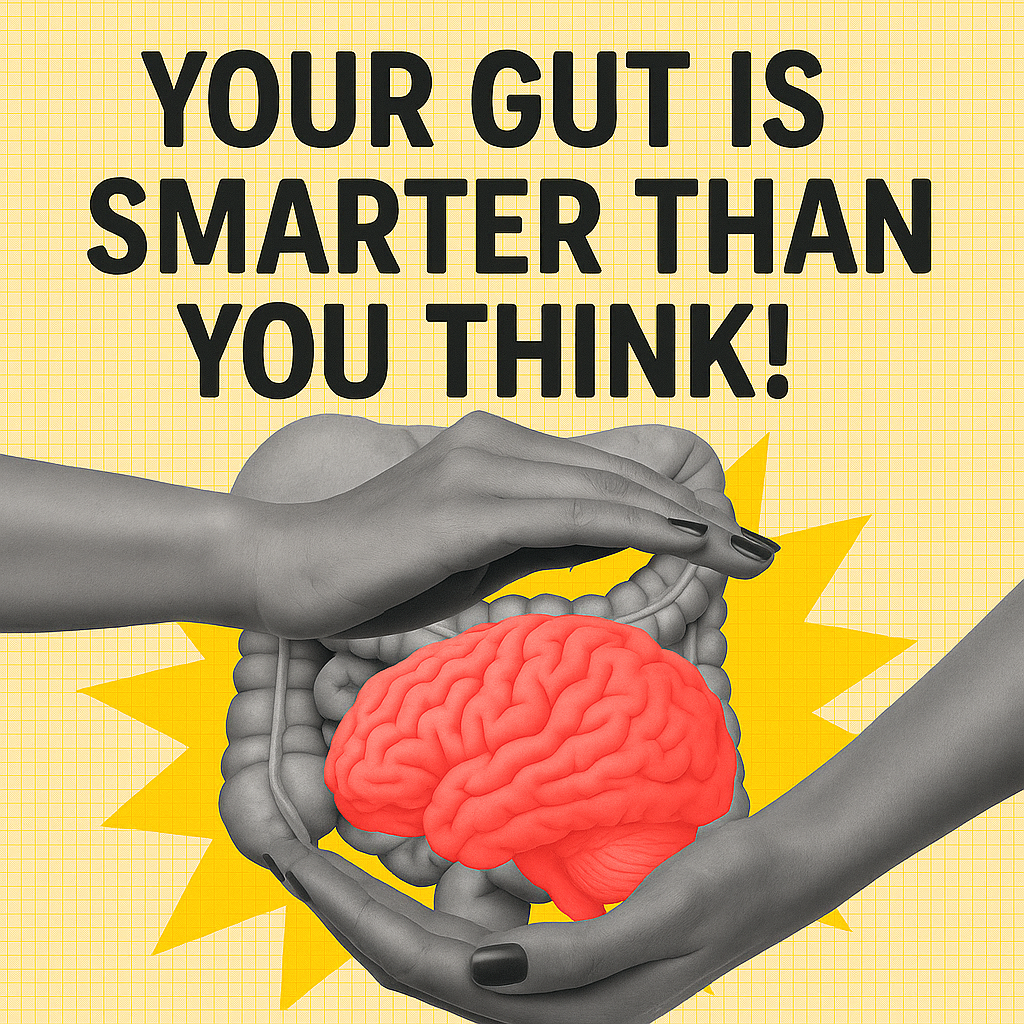Your gut has a brain of its own contains over 100 million neurons
When we talk about intelligence and decision-making, the brain is typically the star of the show. But science is now revealing a surprising truth: your gut has a brain of its own—and it’s a lot smarter than you might think.
The Second Brain in Your Belly
Hidden in the walls of your digestive system is the enteric nervous system (ENS), often referred to as our “second brain.” It contains over 100 million neurons—more than your spinal cord—and manages complex processes like digestion independently from the brain in your head.
This gut-based neural network doesn’t just regulate your intestines. It also:
- Communicates with your brain via the vagus nerve
- Impacts your emotions and mental health
- Influences your immune system, behavior, and memory
In fact, nearly 95% of serotonin, the neurotransmitter linked to happiness and mood regulation, is produced in your gut—not your brain.
Gut Feelings Are Real
Ever had a “gut feeling”? That’s not just a metaphor. Researchers have found that the ENS and brain constantly exchange signals. This means that:
- Stress, anxiety, and depression can begin in the gut
- Disruptions in gut bacteria (your microbiota) are linked to mental health disorders
- Treatments like vagus nerve stimulation can alleviate symptoms of depression by mimicking gut-to-brain signals
Microbiota: The Tiny Engineers
Your gut is home to trillions of microorganisms—collectively known as the gut microbiota. These microbes help:
- Regulate your immune system
- Maintain digestive health
- Produce neurotransmitters that affect your behavior and cognition
Fascinating experiments with germ-free mice (raised without gut microbes) have shown they become more anxious, less social, and have impaired memory. Mice with reduced microbiota become hyperactive and take more risks—proving that what lives in your gut affects how you act and feel.
What This Means for You
Modern science is beginning to see the gut as more than just a digestive organ. It’s a critical part of your mental, physical, and emotional well-being. As Dr. Michael Gershon, pioneer of neurogastroenterology, puts it:
“The brain in the head doesn’t need to get its hands dirty with digestion — that’s the job of the brain in the gut.”
So next time you’re feeling off, anxious, or even joyful—don’t just look to your mind. Listen to your gut.
It’s smarter than you think.
🥦 Key Takeaway:
What you eat affects not just your body—but your mind. Nourish your gut, and you nurture your whole self.
#GutHealth #Neuroscience #Microbiome #MentalHealth #SecondBrain #HealthNews #ScienceDaily




Leave feedback about this